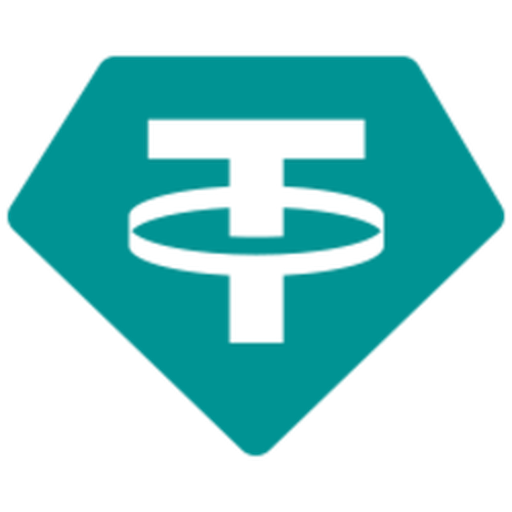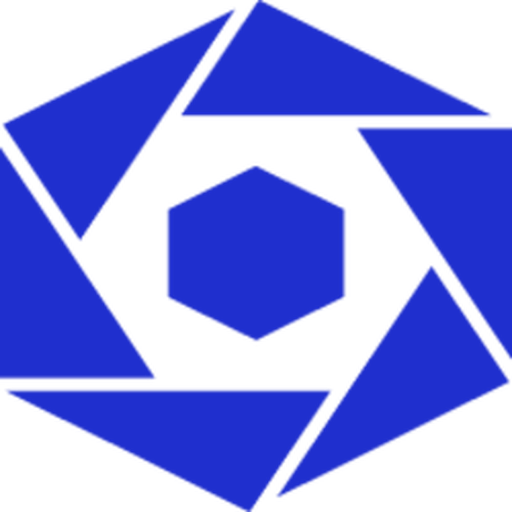Tether vs Constellation – Price, Market Cap & Performance Compared
Which coin performs better – Tether or Constellation?
We compare the current price (1 $ vs 0.03671 $), market cap (173 087 463 220 vs 105 315 586) and all-time high (1.32 vs 0.45176).
Find out which one stands out right now!
Tether is currently trading at 1 $, while Constellation stands at 0.03671 $. These cryptocurrencies differ not only in price but also in market presence.
The market cap of Tether is around 173 087 463 220, and Constellation has about 105 315 586. Their respective all-time highs are 1.32 for Tether and 0.45176 for Constellation.
Daily trading volume and the 24h price change (-0.00189 % vs 1.62894 %) also offer key insights.
Compare all metrics now and see which coin fits your investment strategy best!
Tether
Tether is a widely-used stablecoin in the cryptocurrency market, designed to maintain a value equivalent to a traditional currency like the US dollar. It provides traders and investors with a stable asset to navigate the volatile crypto landscape, offering a flexible means to move funds quickly between exchanges. Despite its popularity, Tether has faced scrutiny regarding its reserve holdings and transparency, sparking ongoing debates within the financial community.
more informationConstellation
Constellation is revolutionizing data management with its innovative blockchain technology, which allows for seamless integration and scalability. By focusing on real-world applications, it enables businesses to harness the power of decentralized networks while ensuring security and efficiency. This forward-thinking approach positions Constellation as a significant player in the evolving landscape of cryptocurrency and data solutions.
more information

|

|
|
|
|
General Information |
|
|---|---|
|
Title
Tether
|
Title
Constellation
|
|
Symbol
usdt
|
Symbol
dag
|
|
Whitepaper
|
Whitepaper
|
|
Website
|
Website
|
|
Community
-
|
Community
|
|
Last Updated
2025-09-24 23:29
|
Last Updated
2025-08-27 14:29
|
Price Data |
|
|---|---|
|
Current Price $
1 $
|
Current Price $
0.03671 $
|
|
High 24h
1 $
|
High 24h
0.03752 $
|
|
Low 24h
1 $
|
Low 24h
0.03492 $
|
|
Price Change 24h
-0.00002 $
|
Price Change 24h
0.00059 $
|
|
Price Change % 24h
-0.00189 %
|
Price Change % 24h
1.62894 %
|
Market Data |
|
|---|---|
|
Market Cap
173 087 463 220
|
Market Cap
105 315 586
|
|
Total Volume
95 616 120 249
|
Total Volume
1 750 386
|
|
Market Cap Change 24h
288 328 065
|
Market Cap Change 24h
2 914 882
|
|
Market Cap Change % 24h
0.16686 %
|
Market Cap Change % 24h
2.84654 %
|
|
Return on Investment (ROI)
-
|
Return on Investment (ROI)
-88.10554 %
|
Supply and Availability |
|
|---|---|
|
Circulating Supply
173 039 417 063
|
Circulating Supply
2 870 562 881
|
|
Total Supply
173 039 417 063
|
Total Supply
3 550 000 000
|
|
Max Supply
-
|
Max Supply
-
|
Historical Data |
|
|---|---|
|
All Time High (ATH)
1.32
|
All Time High (ATH)
0.45176
|
|
ATH Change %
-24.39867 %
|
ATH Change %
-91.92718 %
|
|
ATH Date
2018-07-24 00:00
|
ATH Date
2021-08-25 23:30
|
|
All Time Low (ATL)
0.57252
|
All Time Low (ATL)
0.00110
|
|
ATL Change %
74.71457 %
|
ATL Change %
3 209.75304 %
|
|
ATL Date
2015-03-02 00:00
|
ATL Date
2019-03-09 00:00
|
Tether
Understanding Tether: A Stablecoin Powerhouse
Tether (USDT) is a leading name in the world of stablecoins, a class of cryptocurrency designed to facilitate transactions by maintaining a stable value. Unlike volatile cryptocurrencies like Bitcoin or Ethereum, stablecoins like Tether aim to provide users with the stability of fiat currency, while still leveraging the benefits of blockchain technology.
The Mechanism Behind Tether's Stability
Tether achieves its stability by pegging its value to traditional fiat currencies, primarily the U.S. Dollar. Each Tether token is reportedly backed by an equivalent amount of fiat currency held in reserve. This 1:1 backing mechanism is key to maintaining the coin's stable value, as reflected in its market price which typically hovers around 1 USD.
Historical Development and Milestones
Tether's inception dates back to 2014, and since then, it has played a pivotal role in demonstrating the practical use case of stablecoins within the crypto ecosystem. Its journey has seen significant milestones, including reaching its all-time high of $1.32 in July 2018, and experiencing its low at $0.572521 in March 2015. These deviations, while noteworthy, are rare occurrences in Tether's overall history, underscoring its primary objective of price stability.
Advantages of Using Tether
The primary advantage of Tether is its stability, making it a safe harbor for investors during times of high volatility in the broader cryptocurrency market. By offering price predictability, it facilitates more efficient trading, lending, and arbitrage, making it an indispensable tool for crypto exchanges and users alike. Moreover, Tether's utility is further enhanced by its widespread acceptance and high liquidity.
Challenges and Controversies
Despite its widespread use, Tether has faced scrutiny regarding its claims of full fiat backing. Critics have raised concerns about transparency, regulatory challenges, and the adequacy of its audited reserves. These issues have occasionally prompted regulatory attention and calls for greater transparency and accountability from Tether’s management.
Future Outlook for Tether
The future of Tether rests heavily on its ability to maintain trust and transparency with users and regulators alike. As the crypto market matures, Tether is expected to continue playing a significant role, particularly if it can navigate the evolving regulatory landscape successfully. Its position as a stablecoin market leader suggests that it will remain a cornerstone in crypto trading, offering a reliable alternative to more volatile assets.
In conclusion, Tether stands out as a critical tool within the cryptocurrency space, providing much-needed stability for traders and businesses. Its ongoing relevance will depend on its adaptability to regulatory demands and its continued assurance of transparency and full reserve backing to its user base.
Constellation
Understanding Constellation: A Comprehensive Overview
Constellation (DAG) is a cryptocurrency that aims to offer a unique approach to blockchain technology. At its core, Constellation attempts to solve scalability issues that plague many other blockchain networks. Launched to facilitate efficient data transfer for emerging technologies such as IoT, this digital asset garners interest due to its innovative technology and potential applications across various sectors.
Features of Constellation
One of the most significant features of Constellation is its Directed Acyclic Graph (DAG) architecture, which allows for transactions to be processed in a highly parallelized manner. This stands in contrast to traditional blockchain systems that rely on linear transaction validation, thereby limiting scalability. Constellation's platform enables developers to build decentralized applications (dApps) that can benefit from fast transaction speeds and lower costs.
Moreover, Constellation has formed various partnerships with industry leaders, highlighting its commitment to real-world applicability. This includes collaborations focused on data security, performance analytics, and IoT solutions, which showcase the coin’s versatility and capability to integrate into different technology stacks.
Past Performance of Constellation
Since its inception, Constellation has experienced significant price volatility. Its all-time high (ATH) of $0.4517 was reached on August 25, 2021, which marked a period of substantial interest and investment in the altcoin sector. However, the price has since seen a drastic drop, with current trading values around $0.0265 as of late October 2024. The coin has suffered from a ROI of nearly -85%, which serves as a stark reminder of the unpredictable nature of cryptocurrency markets.
On the positive side, the coin has rebounded from an all-time low (ATL) of $0.0011 in March 2019, showing a remarkable increase of over 2300%. This impressive leap highlights the potential for recovery in the cryptocurrency space, albeit with a fair amount of risk.
Advantages of Constellation
Constellation brings several advantages that make it appealing to both developers and investors:
- Scalability: Thanks to its DAG architecture, Constellation can process a high volume of transactions without the common bottlenecks seen in traditional blockchains.
- Cost-Effective: Transaction fees are typically lower than those on more congested networks, making it economically attractive for users.
- Robust Ecosystem: Through partnerships and its versatile utility, Constellation is positioning itself well within the rapidly evolving landscape of decentralized technologies.
Challenges and Risks Facing Constellation
Despite the positives, Constellation is not without risks:
- Market Volatility: The cryptocurrency market is notoriously volatile, and Constellation is no exception. Investors should be prepared for significant price fluctuations.
- Adoption Rates: The ultimate success of any cryptocurrency hinges on its adoption. If developers and companies do not see the value of building on Constellation's platform, it may struggle to gain market traction.
- Regulatory Issues: Like all cryptocurrencies, Constellation faces the risk of regulatory scrutiny, which could impact its usability and growth potential.
Future Outlook for Constellation
Looking ahead, the future of Constellation hangs in a delicate balance. Factors such as technological advancements, market conditions, and broader cryptocurrency adoption will all play critical roles in the coin’s development. If the team continues to innovate and expand its partnerships, Constellation may unlock new avenues for growth.
Ultimately, potential investors should weigh the advantages against the risks and conduct thorough research before diving into the Constellation ecosystem. For those willing to navigate the uncertainties of the cryptocurrency market, Constellation could serve as an interesting addition to their portfolio.
Conclusion
Constellation has carved out a niche in the blockchain space thanks to its innovative technology and aspirations for scalability. While its path has not been without obstacles, its potential for growth and real-world application makes it a coin to watch in the coming years. As always, staying informed and assessing the evolving landscape will be key for anyone considering investment in this altcoin.

